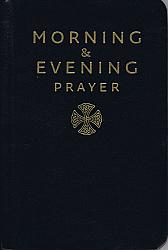

That means after praying a Psalm, you will have to flip the page backwards to recite the correct antiphon.
DIVINE OFFICE NIGHT PRAYER FOR TODAY FULL VERSION
Unlike the full version of the divine office, the antiphons are only printed once at the beginning of each Psalm. When with others, you will recite the antiphon after every stanza.īefore we go any further, a note about Christian Prayer. If you are praying the Invitatory on your own, you will say the correct antiphon once, pray Psalm 95 and then recite the same antiphon at the end. Until you have them memorized, you can always turn to the “Ordinary” to find them.Īfter you have read the “Ordinary,” you can leave your first ribbon where it says “ Invitatory.” This is composed of an antiphon and Psalm 95 and is typically prayed before Morning Prayer (or the Office of Readings). The “Ordinary” also has prayers that are repeated each day such as the “Magnificat” and “Benedictus.” You pray these at Evening and Morning Prayer and are typically memorized in the monastery. I suggest reading through the entire “Ordinary” before going any further. All the words printed in the color red are your instructions and all the words printed in black are the prayers you actually pray. There are plenty of instructions and options, so read it all very carefully. Here we see how the common phrase “ Say the Black, Do the Red” comes in handy. The “ Ordinary” is the basic “instruction manual” for the Liturgy of the Hours and acts as a reference point if you ever get stuck. To begin setting the ribbons, take one of them and open to page 686 where the “ Ordinary” and “ Invitatory” are located. If you only have enough time to pray one or more of those prayers, I suggest picking-up Christian Prayer.įirst of all, as with any breviary, there are the all-important “ ribbons.” These are extremely important and allow you to mark the correct parts of the divine office. It contains: Morning, Evening & Night Prayer, with an abbreviated section for the Office of Readings and Daytime Prayer.

Today, I will walk you through the most common prayer book lay people can pick up to pray the principal hours of the divine office: Christian Prayer.
DIVINE OFFICE NIGHT PRAYER FOR TODAY HOW TO
–> Fight Distractions! A step-by-step guide on how to stay focused during prayer However, after an initial introduction to praying the Liturgy of the Hours, it becomes quite easy and is like clockwork. However, after the liturgical changes that were effected during the Second Vatican Council, the content and the hours were changed or, let’s say, realigned.Praying with a physical breviary can be challenging especially if no one is there to show you how. Compline or Night Prayer (before retiring, – around 7 pm).Vespers or Evening Prayer (“at the lighting of the lamps” – around 6 pm).None or Mid-Afternoon Prayer (Ninth Hour – around 3 pm).Sext or Midday Prayer (Sixth Hour – around 12 noon).Terce or Mid-Morning Prayer (Third Hour – around 9 am).Prime or Early Morning Prayer (First Hour – around 6 am).Previously, the Liturgy of the Hours comprised of eight canonical hours as postulated by St Benedict of Nursia in his Rule (Rule of St Benedict). In the Roman Catholic Church, the lay people are also encouraged, but not obligated, to observe the Liturgy of the Hours, together with the priests or other people, or even alone.

The Morning Prayer has the Benedictus (the Canticle of Zechariah from Luke 1:68-79), while the Evening Prayer has the Magnificant (the Canticle of Mary from Luke 1:46-55).Īll bishops, priests, and deacons who plan to become priests are obligated to celebrate the Divine Office and many congregations urge their members to celebrate jointly as opposed to alone. The Morning and Evening Prayers have a Gospel reading each. However, the dialogue is always held in God’s presence.Įach of the canonical hours contains selections from the Psalms.

These dialogues range between a person and God, the Church and God, the Church and the world, or among the Church members. These prayers are found in the Breviary.ĭuring the Liturgy of the Hours, the faithful hold a meditative dialogue with God using scripture, Prayers, antiphons, and hymns. These are the daily prayers, prayed each day at the canonical hours of the Roman Catholic Church to sanctify the day with prayer. The Liturgy of the Hours is also called the Divine Office or the Work of God.


 0 kommentar(er)
0 kommentar(er)
